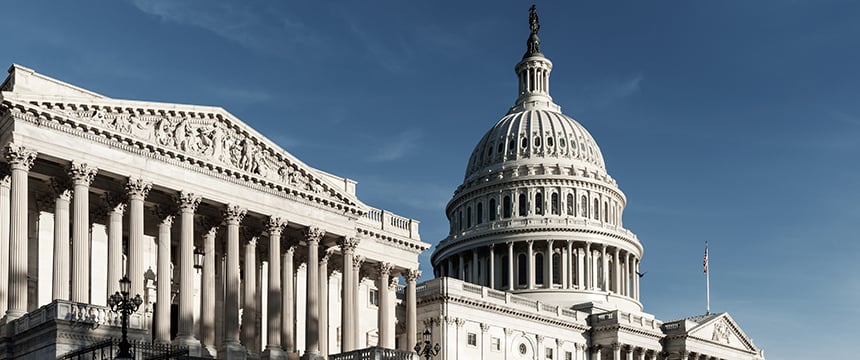The CPSC Promises Higher Civil Penalties and More Aggressive Enforcement

Thank you to summer associate Marcella Michalek for contributing to this article.
The consumer product industry can expect more aggressive enforcement from the Consumer Product Safety Commission (CPSC), including higher civil penalties, increased use of criminal penalties, and the implementation of additional injunctive measures. As part of the CPSC’s self-proclaimed “reinvention” following historic lows in enforcement under the Trump Administration, civil penalties returned in 2021 after a two-year hiatus. The CPSC has continued leveraging civil penalties thus far in 2022—and leadership has expressed a commitment to support higher civil penalties, criminal penalties, and the potential use of additional injunctive measures in the future.
2022 Civil Penalties
Civil penalties are making a comeback. In 2021, the CPSC issued two civil penalties. First, the CPSC issued a $12 million penalty against Walter Kidde Portable Equipment, Inc. for—among other things—failure to timely report at least one hundred incidents of fire extinguishers failing to discharge, additional reports of product defects showing the scope of a 2015 joint recall was too narrow, and testing and incident data showing the true scope and nature of the defect and risk. Second, the CPSC issued a $7.95 million civil penalty against Cybex International, Inc. for failure to timely report over one hundred complaints of defective exercise equipment.
Thus far in 2022, the CPSC has issued three civil penalties stemming from charges that companies failed to timely report product defects. In January, the CPSC announced a $6.5 million civil penalty agreement with Core Health & Fitness LLC related to 55 incidents of parts falling from its exercise machines. In July, the CPSC announced a $7.5 million civil penalty agreement with Vornado Air LLC related to incidents of its electric space heaters overheating and catching fire, including a report of the death of a 90-year-old man. In early August, the CPSC announced a $13 million civil penalty agreement with TJX Companies Inc. related to allegations that TJX “knowingly sold, offered for sale, and distributed approximately 1,200 recalled products from 21 separate voluntary corrective actions during a five-year period from Mach 2014 through October 2019.” In late August, the CPSC also announced a $5 million civil penalty agreement with Segway Powersports Inc. for knowingly importing ATVs without a CPSC-approved ATV action plan. However, the CPSC has suspended this penalty based on Segway’s purported inability to pay.
Industry should expect more civil penalties of increasing magnitude. With the announcement of the July $7.5 million Vornado settlement, three of the five CPSC commissioners—Chairman Alexander Hoehn-Saric and Commissioners Richard Trumka, Jr. and Peter Feldman—issued individual statements criticizing the settlement as inadequate. Those same three commissioners then issued statements commenting on the August $13 million TJX and $5 million Segway settlements.
The “New” CPSC’s Aggressive Agenda
The CPSC’s commitment to “reinvention” is apparent from the individual statements that Chairman Hoehn-Saric and Commissioners Trumka and Feldman issued with the $7.5 million July settlement and $13 million and $5 million August settlements. From the “new” Commission, companies should expect the CPSC to continue to impose higher civil penalties and to pursue criminal penalties and other injunctive measures.
In July, Commissioner Trumka declared an intention for the “new” Commission to “wip[e] the slate clean and writ[e] the next chapter in CPSC’s work.” Trumka then said the August settlement with TJX “represents CPSC’s next chapter of real accountability and deterrence,” noting that “other cases may call for criminal prosecution” and that “[s]trong and frequent use of CPSC’s enforcement authority will keep consumers safe and healthy.” In both July and August, Commissioner Trumka warned that he expects future penalties to be “multiples higher” than in the past, and that “[c]ompanies that violate CPSC laws and flagrantly ignore their obligations will face steep civil penalties.” Further, Chairman Hoehn-Saric “urged Congress to remove or dramatically increase the existing limits on CPSC’s civil penalty authority.”
Commissioner Feldman clarified he would “continue to support higher penalties for the worst conduct.” While he did not clearly define the standard for “worst conduct,” Feldman’s statements indicate that he would prefer the agency go further than it has, criticizing the CPSC’s repeated “fail[ure] to secure meaningful relief.” In July, Feldman deemed Vornado’s conduct to be particularly egregious due to the company being a repeat offender and a reported death. In August, Feldman opposed the settlement agreements with TJX and Segway, stating that “additional injunctive relief in the form of a third-party compliance monitor should have been required” for TJX and that Segway should have received a higher civil penalty and faced a criminal inquiry. Notably, Feldman questioned the Commission’s commitment to their aggressive agenda, stating that the “unwillingness to require a monitor or to litigate rather than settle reflects on our resolve in these matters” and labeling “Chinese-owned” Segway as the “most recent beneficiary of lenient settlement terms” with the agency.
Civil penalties apply industrywide. In his July statement, Chairman Hoehn-Saric stressed that the “entire consumer product industry—including manufacturers, importers, and retailers—have an obligation to immediately report potential defects” to the Commission. The CPSC has already made this clear in filing a complaint against Amazon in 2021 regarding various products sold on the e-marketplace and through its pursuit of TJX. Though the CPSC’s custom had previously been to seek enforcement against manufacturers, the duty to report does not fall on manufacturers alone. Importers, distributors, and retailers have a legal obligation to report product safety hazards and defects that could create a substantial risk of injury or that create an unreasonable risk of serious injury or death.
In addition to civil penalties, industry should prepare for potential criminal penalties and independent monitoring in future cases. Chairman Hoehn-Saric stressed that the CPSC will pursue both “significant civil and potentially criminal penalties” against violators and that “it may be appropriate to use an independent monitor in other cases.” In 2021, the CPSC issued a rare criminal penalty against Gree Electric Appliances Inc. that resulted in the first criminal prosecution in the history of the Consumer Product Safety Act (CPSA). According to the filings, Gree “knew their dehumidifiers were defective, failed to meet applicable safety standards and could catch fire, but . . . failed to report that information to the CPSC for months.” Going forward, in the words of the Chairman, it appears that the CPSC is truly willing to use “all the tools at [its] disposal.”
The CPSC’s Composition and Increased Budget
When the July $7.5 million settlement negotiations began with Vornado two years ago, the CPSC had a different composition. A lot has changed since then. Democrat-appointed Chairman Hoehn-Saric and Commissioner Trumka were confirmed in October 2021, and Commissioner Mary Boyle was recently confirmed in June 2022. This brings the CPSC split to 3-2 in favor of Democratic appointees. These confirmations likely will allow the CPSC to more aggressively pursue the Biden Administration’s expressed desire to increase regulation and enforcement after the Trump Administration’s deregulation agenda.
The CPSC is also equipped with a larger 2022 budget that increased from $135 million in 2021 to $195.51 million in 2022. The 2022 amount falls short of the $370 million previous CPSC acting chairman Robert Adler had requested from chairwoman of the House of Representatives Committee on Appropriations Rosa DeLauro in a public letter in March 2021. However, the current—or “new”—CPSC nonetheless appears committed to the Commission’s expansive “reinvention” that this proposed budget was intended to achieve.
More Penalties to Come
The commissioners’ remarks in conjunction with the recent civil penalties announcements indicate there is more to come. Aggressive civil penalties, criminal penalties, and additional injunctive remedies are likely, especially considering the larger budget and newer composition of commissioners. Now especially, manufacturers, importers, distributors, and retailers must ensure their internal compliance programs are comprehensive and well maintained. Such programs must include processes and procedures to confirm that all products meet applicable safety standards and regular testing for continued compliance. Companies must also ensure that customer feedback is actively monitored and that any recurrent complaints or issues are thoroughly investigated and, if deemed to be a substantial hazard, promptly reported to the CPSC.
How industry reacts to this paradigm shift remains to be seen. The CPSC has long touted the need for regulators and industry to work together as partners in consumer product safety. Will the new CPSC’s more aggressive stance lead to a more adversarial relationship? As penalties increase, it is all but certain that some target companies will choose to fight rather than comply, particularly if the safety issue is not clear-cut.

